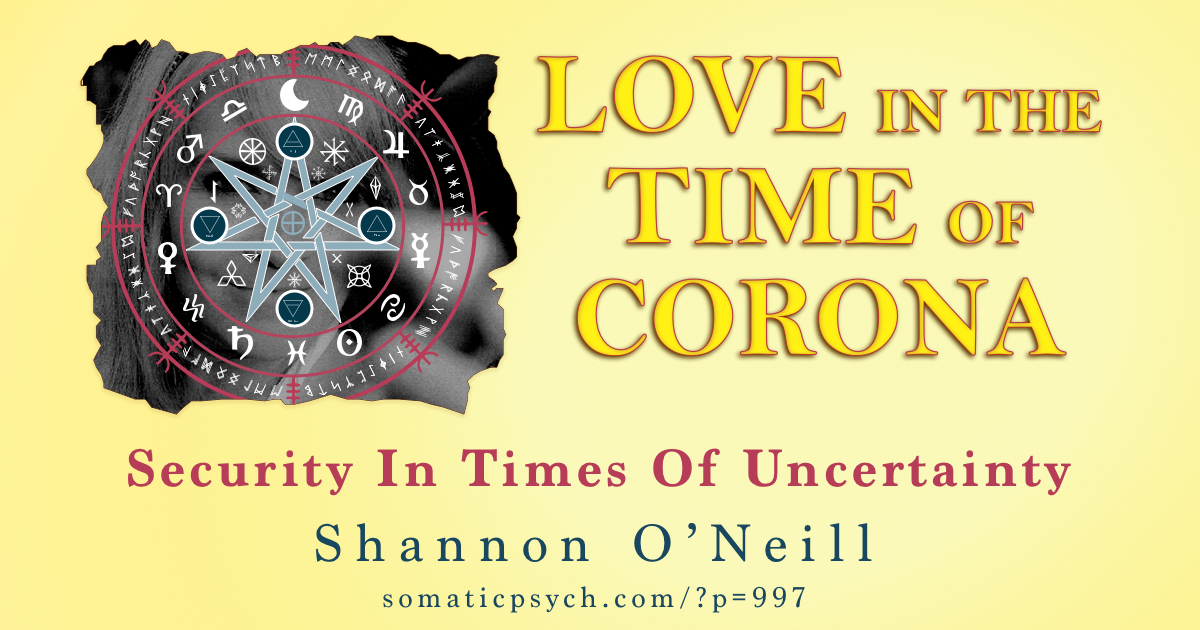Security in Times of Uncertainty

As we begin our foray into the Great Unknown, our minds and bodies are upregulated & speeding up to orient to threat and adapt accordingly. We are all now operating in our own unique hybrid of our evolutionary inheritance and biographical/biological adaptations to deal with rapid change and perceived threat. Although this is only natural, most are running into inner and outer conflict. In times of great shift, everyone has a bias based on their unique adaptation to what is the “best” way to handle threat.
Remember: Before you assume that someone is handling this crisis “the wrong way”, take into account that evolution utilizes diversity in adversity for a species to survive. That being said, there are such things as maladaptive strategies in the realm of Homo Sapiens Sapiens.
We may certainly identify behaviors in ourselves or others that do not promote safety and security: Panic, substance abuse, hoarding, competition, judgmentalism, aggression, etc. These are all indicative of the instinct injury we all have incurred during the last couple of millennia of domestication and “Civilization”.
“Survival of the Fittest” is a capitalist spin on Darwin’s theory.
“Survival of the Fittest” is a capitalist spin on Darwin’s theory. It’s true that, as a naturalist, he wrote of competition a dozen or so times. However, he used terms such as “cooperation”, “affiliation”, “love” hundreds of times.
Recently, Darwin’s theory has been scientifically proven by the work of Stephen Porges. His findings on the Polyvagal System, demonstrate that our nervous system is hierarchically stacked to employ our social engagement/ventral vagal/attachment nervous systems first to solve life’s challenges. Only after this evolutionary, field-tested strategy is utilized and not effective, are secondary mobilizing or then tertiary immobilizing physiology useful.
Unfortunately, our species has been conditioned for centuries to mistrust our primary survival strategy: Affiliation, bond, cooperation, and love. Now is the time for us to break the spell and remember nature’s way. Animals, especially mammals and warm-bloodeds, start first with care and cooperation in order to survive. Even trees use the mycelium network underground to send nutrients to each other, so that trees in need of sustenance are protected. Let’s follow their example for Goodness’ sake.
Next In Series: Panic: Polyvagal Practices
